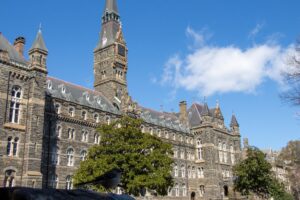In the Voice’s Sept. 16 article “On the Record: Álvaro Uribe,” the former President of Colombia said that I am “completely wrong” for suggesting that he has shown contempt for human rights work. The problem with his denial—sadly, lying about factual matters is the norm for Uribe—is that the world has recording equipment.
Some of Uribe’s widely-quoted descriptions of human rights workers, such as the notable human rights organizations Human Rights Watch and Amnesty International, include: “Rent-a-mobs at terrorism’s service who cowardly wave the human rights flag”; “human rights traffickers”; and “intellectual front of the [Revolutionary Armed Forces of Colombia]”.
“Amnesty International [does] not condemn international humanitarian law violations by the guerrillas and they give legitimacy to terrorism,” he has said. “They go around European bureaus like library rats, gossiping in low voices, undermining Colombian institutions.”
Perhaps someone could explain how these descriptions are not contemptuous?
Uribe has also slandered specific individuals.
“Before [José Miguel Vivanco, a director of Human Rights Watch], a FARC defender [and] accomplice, came here to criticize our policy of democratic security, we were making serious efforts to put our country on its feet,” he said. “I don’t have anything to learn from Mr. Vivanco when it comes to human rights.”
His accusations have not gone unnoticed in the international community.
Human Rights First responded by saying, “President Uribe and other administration officials have branded [human rights defenders] as terrorist sympathizers and have insinuated that illicit connections exist between human rights [non-governmental organizations] and illegal armed groups. Irresponsible comments by government officials in Colombia put the lives of human rights defenders at even greater risk and threaten to undermine the value and credibility of their work.”
Margaret Sekaggya, who researches human rights defenders for the United Nations Human Rights Commission, found that human rights defenders in Colombia constantly face “stigmatization by public officials and non-State actors; … illegal surveillance by State intelligence services; … arbitrary arrest and detention; … judicial harassment; and raids of nongovernmental organizations’ premises and theft of information.”
One could go on, but I trust the point is clear. I would urge the Voice to go further and examine his actions in a detailed article by an expert on human rights in the region. But what I would really like to see is a response to these contemptuous remarks from someone in the Georgetown administration. I would like to understand how this sort of “distinguished leadership” is consonant with Georgetown’s claim that it places social justice and service to humanity at the center of its teaching mission.
—Mark Lance
Professor, Department of Philosophy
and Program on Justice and Peace
Georgetown University



